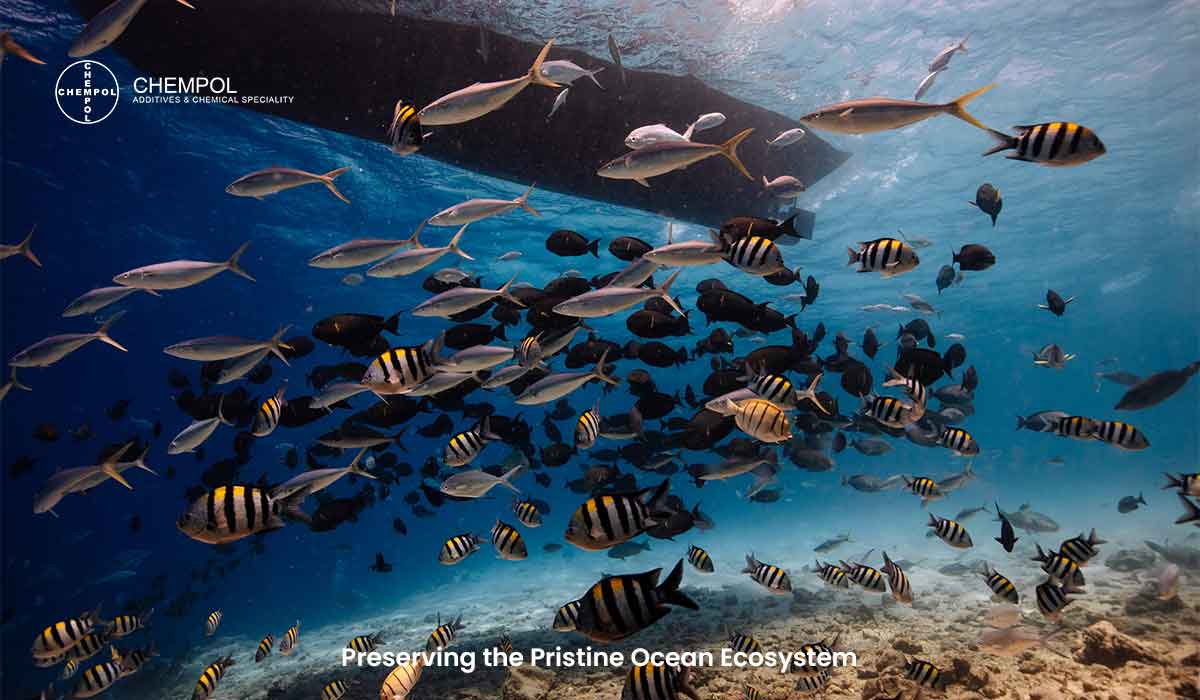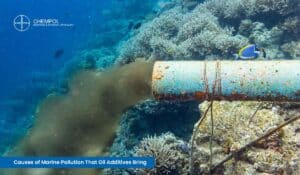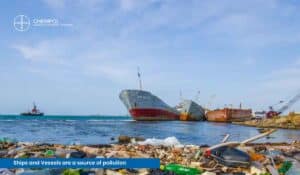
Preserving the Pristine Ocean Ecosystem: A Call to Action for Marine Oil Additives Manufacturers in the UAE
The COP28 Summit in Spain will be a crucial opportunity for the international community to act and keep things differently.
The captivating beauty of our oceans and water is a testament to the wonderful planet that we own. But beneath the surface lies an ecosystem in peril. One thing that demands our attention is saving marine life from the harmful effects of marine oil and additives.
Preserving the pristine state of our oceans is not just a global responsibility but a call of duty for global industries, including the marine oil additive manufacturers in the UAE.
The COP28 Summit in Spain will be a crucial opportunity for the international community to act and keep global warming within 1.5 degrees Celsius above pre-industrial levels. This is a beacon of hope, offering a platform for global leaders to address the pressing issue of marine conservation.
In the lubricants and additives industry, where the reliance on marine transportation is substantial, our role in protecting ocean health is paramount.
As one of the world’s top producers and users of gas and oil, the UAE can make a big contribution to the clean energy transition by lowering its carbon footprint. By implementing more environmentally friendly procedures and goods, the marine oil additives sector—which supplies lubricants and specialty compounds for maritime applications—can also support this endeavor.
Causes of Marine Pollution That Oil Additives Bring

Marine lube oil additives are substances that reduce friction and wear between ships’ engine parts. They are organic (from petroleum), synthetic (artificially made), and vegetable oils. These oils can cause water pollution when they are leaked, spilled, or discharged from various resources, such as ships, pipelines, offshore platforms, or industrial facilities.
Some of the ways that marine diesel oil additives can cause water pollution and harm marine life are:
- Lubricants create a thin layer on the surface of water, decreasing the amount of sunlight and oxygen, resulting in no sunrays on ocean beds. This can impact the photosynthetic function of marine plants, which are the source of oxygen for marine life.
- Lubricants can cover the feathers of birds, seabirds, and marine mammals, leading to the loss of their insulation and buoyancy. This can lead to the consequences of hypothermia, drowning, or reduced mobility and feeding capacity in birds.
- Marine animals can mistakenly ingest marine oil and lubricants with food or water. This can cause internal damage, starvation, or the poisoning of species.
- Lubricants can have a toxic additive that can collect in the tissues of marine organisms and cause various health problems, such as cancer, generative disorders, or immune system dysfunction.
- Marine engine oil additives can change seawater’s biological and chemical properties, such as temperature, saltiness, pH, and density. The results can influence the marine organisms’ growth, development, and survival.
Oil Additive Manufacturers Can Play Their Role
Marine oil and lubricants are one of the many sources of ocean pollution that seriously threaten the health of marine ecosystems. To prevent and reduce that impact, some possible solutions in the form of additives that manufacturers can take care of are:
- Use biodegradable and environmentally friendly lubricants that have less harmful effects on the environment and marine life; this can be organic or vegetable oil.
- Implementation of strict regulations and standards for the disposal and treatment of lubricants to prevent leaks and spills in water.
- The reusability of marine oils can be an effective way.
- Educating the public and raising awareness about the causes and futuristic dangers of lubricants through different mediums of communication, such as digital or social media.
- Encouraging research and innovation on alternative energy sources and technology that reduce the use and dependability of lubricants.
- Collaborating with other stakeholders in the oil and gas industry, as well as the government and civil society, to promote best practices and standards for environmental protection.
- Most importantly, using biodegradable and environmentally friendly additives reduces harmful emissions and prevents oil spills.
These are some of the steps that can help save the marine environment. These are also helpful for oil additives. manufacturers in the UAE, where they can enhance their competitiveness and profitability and demonstrate their social responsibility.
What is the UAE’s story?

The marine environment and ecosystem are closely intertwined with the businesses and lives of the Emirates. Its waters are used for desalination and other industrial activities. While the marine sector contributes to the UAE’s growth, the country’s dramatic rise also contributes to marine flora and fauna. The UAE faces many challenges and environmental threats, such as biodiversity loss, marine and coastal area pollution, and poor water quality.
There is no doubt that oceans are affected by maritime traffic. Ships and vessels are a source of pollution that affects marine water quality and marine life. They usually discharge wastewater, oil and grease, fuel spills, and chemicals into the marine waters.
Considering all these things, the lubricant oil industry keenly observes the use of sustainable additives and chemicals, especially in the UAE. However, there is a need for more advancements.
The Technological Advancements In The Oil And Chemical Industry
Recent advancements in marine oil additive technology provide us with the tools and ideas to minimize our ecological footprints, especially in the marine environment. Biodegradable additives, eco-friendly lubricants, and enhanced filtration systems are just a few steps taken now.
These innovations have reduced the environmental impact of our industry and protected marine life from the harmful effects of pollution.
As an additives manufacturer in the UAE, our proximity to the Persian Gulf and the Arabian Sea waterways underscores our responsibility. We are advocates for stringent regulations, investing in research and development, and promoting eco-conscious practices within our industry.
Preserving the pristine state of our oceans is not just a moral obligation but also an economic one. A healthy marine environment is the source of fisheries, tourism, and countless livelihoods. Let’s come together, gather our technological possibilities, and pledge to protect our oceans with the design of the best oil additives for diesel engines to protect our oceans for generations to come. One action today will determine the fate of the world tomorrow.


